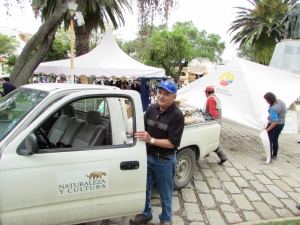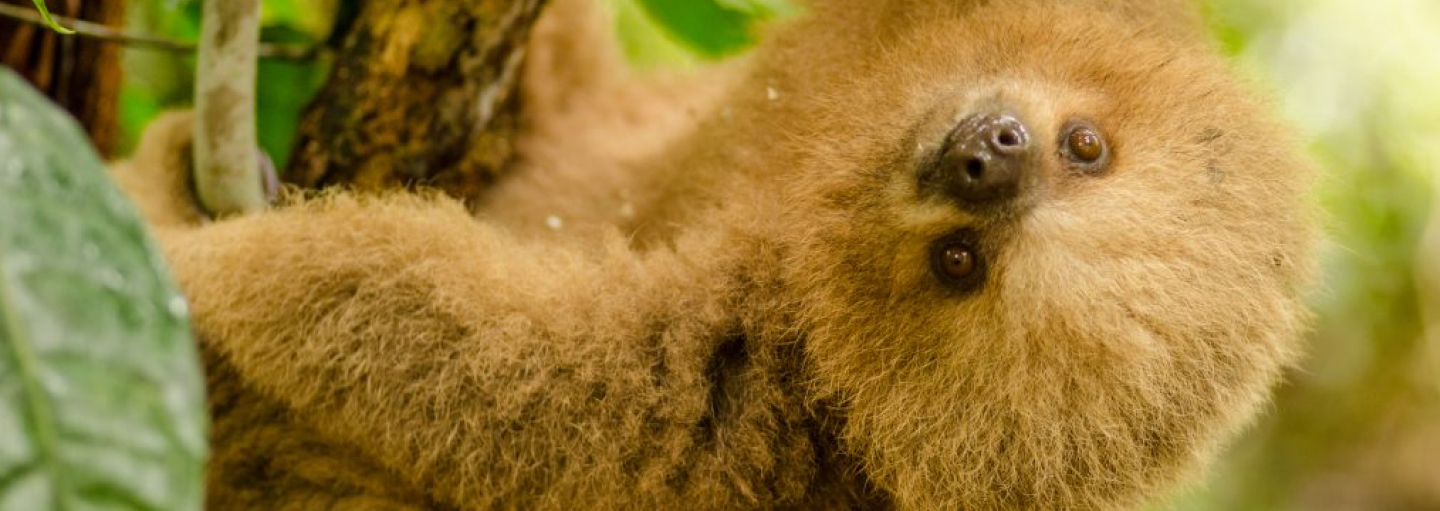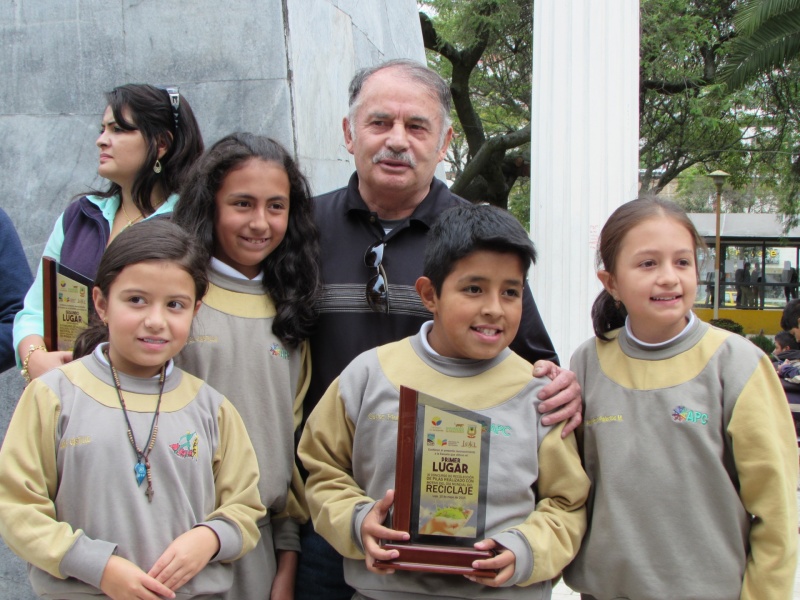Planting Seeds for Conservation: An interview with Galo Carrillo
06/16/2015
By Matt Clark, Senior Advisor
“All these things were stirring as conservation seeds inside me. You could say they reached fertile ground: my way of thinking, my way of being, my way of fulfilling myself as a teacher.”
– Galo Carrillo, Environmental Education Coordinator, NCI-Ecuador
The experiences we have as children profoundly influence the course of our lives. NCI’s Environmental Education Coordinator, Galo Carrillo, spent his childhood roaming the meadows, streams and mountains surrounding Quito, the capital city of Ecuador. They inspired his lifelong love for nature and his passion for protecting it. He has spent the rest of his life inspiring others, nurturing their curiosity and making sure that nature plays a part in their lives, as it has played such a key part in his.
Reminiscing about his childhood, Galo told me,
“I had a grandfather on my father’s side and during my school vacations, he would take me to his farm. He had a pretty country house and land with fruit trees, barley, and rabbits. I had a close relationship with my grandfather, with the countryside, the orchards. Later, my parents bought a house in Quito. It had a creek that ran behind it where we rinsed sacks of chochos, a popular legume, to remove the bitter flavor before we sold them. The Atahualpa Military Base was also nearby. On our days off, we would rope and ride the army’s horses. So I grew up in the creek, in the hills, intimately connecting with nature, with her defense, with the changes that happened to her later.”
Galo went on to become a science teacher. In his 32 years at Bernardo Valdivieso High School in Loja, he inspired countless students, among them several members of NCI’s staff.
“During my life as a teacher, I was in charge of the Science Club, and I coordinated students’ science and technology projects. We won three national science and technology fairs. In 1992, we represented Ecuador in the Ninth Environmental Youth Congress in Chile. I traveled there with Felipe Sanchez (now a mapping technician in NCI’s Loja office) who was a student at Bernardo Valdivieso. We presented a project related to flower preservation that had won at the national level in Ecuador.
I remember Renzo, who is now NCI’s Vice President, did a research project on orchids. In Renzo’s case, he was always very close to nature. His grandfather, his family’s land in Vilcabamba – I think these created a connection to nature in his core, in his heart and mind, so that conservation took root in him permanently.
Former students of mine recently invited me to give informal lectures at the National University of Loja because I’d been their high school teacher. What I’d taught them stayed with them. Those students have chosen careers in science, as biologists and university professors. And I receive calls from students who have emigrated, who have called me from Madrid to say, ‘I’m grateful to you, Professor. You made an impression on me that I haven’t forgotten.’”
After retiring as a science teacher, Galo began his second career at Natural and Culture International. In his 16 years with NCI to date, he’s created a framework for environmental education that is used throughout the province of Loja and beyond.
“We made the first annual ecological calendar, not just in the province but in all of Ecuador. It expanded the number of annual environmental education activities from three to nearly 30. This helped the Department of Environmental Education design the first environmental curriculum for the grade schools and high schools of the city and province of Loja. It went to the national level. It made such a splash that they called us on the telephone from Guayaquil (Ecuador’s largest city) to ask if they could use it.”
Galo was also the driving force in forming EcoClubs in Loja, which are the primary platforms for students to engage in environmental activities.
“In the ‘90s, I had become interested in the idea of forming an EcoClub because as a high school teacher, I had run the Science Club. I knew about a foundation for EcoClubs in Guayaquil, so I met with the president and asked him how many EcoClubs existed. At that time, there were only two in all of Ecuador. I said, “I’ll tell you what. Within six months, I’ll have ten more in Loja province.
The children and teens that form the EcoClubs are totally independent, and very democratic. They name their EcoClub, and choose a plant or an animal as a mascot. They are proud of their clubs. The kids do projects for the benefit of the environment, generally related to reforestation. Also some research projects related to native plants or fruits.”
Galo’s lasting legacy may be the framework he envisioned and helped create for delivering a comprehensive environmental education program at a large-scale. But his joy clearly comes from the time he spends with students. He has the energy of someone half his age, which he spends on a dizzying array of activities with EcoClubs and schools: ecological fashion shows, battery recycling campaigns, field-trips to the nearby Podocarpus National Park, kite-flying (to name just a few). And he clearly worries that in our increasingly distracted and connected-yet-disconnected world, kids are losing touch with nature and the freedom and desire to explore that defined his own childhood. You get the sense that this is part of what drives him to get kids outside and experience their environment firsthand.
“I value my relationships with children and teenagers: their devotion, their inclination to defend nature. But they’re growing up in a different era with advanced technology. Sometimes, I worry that they don’t know things that we used to learn naturally. For example that milk comes from a cow. I was at an environmental forum and one of the organizers asked where milk comes from. A kid stands up, raises his hand, really extroverted, and says, ‘From the SuperMaxi.’ We all laughed, but that is his reality. We arrange guided tours to our local creeks and watersheds, to the drinking water treatment plant. It’s easier to explain where water comes from when children can observe the reality they live in. So the children of Zapotillo know that their water comes from wells. And Loja’s children know that if the eastern mountain range wasn’t providing water, Loja wouldn’t exist.”
 In spite of all he’s already accomplished, Galo is not one to rest on his laurels. There’s too much left to be done to stop now.
In spite of all he’s already accomplished, Galo is not one to rest on his laurels. There’s too much left to be done to stop now.
“I would like to see the network of EcoClubs strengthened. The field of environmental education is essential in the times we’re living in, with the contamination of the planet, the destruction of the ozone layer, climate change. It’s indispensable that everyone plays their part. I think this can be achieved best by the EcoClubs, where the children can strengthen their spirits and build their knowledge to preserve the planet. We’re on a path with footprints on it. But if we don’t keep walking on it, the weeds will grow and the path is going to disappear.”



